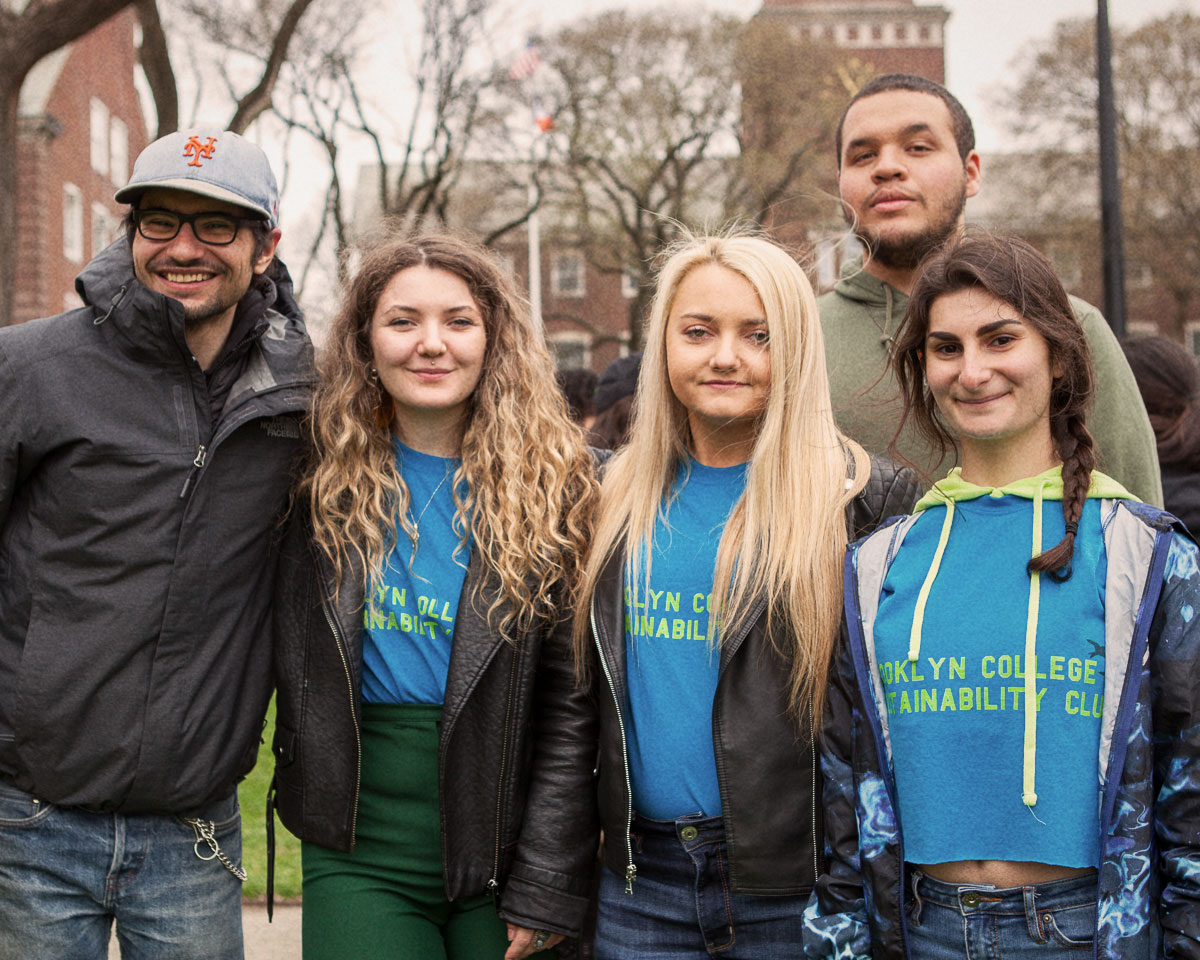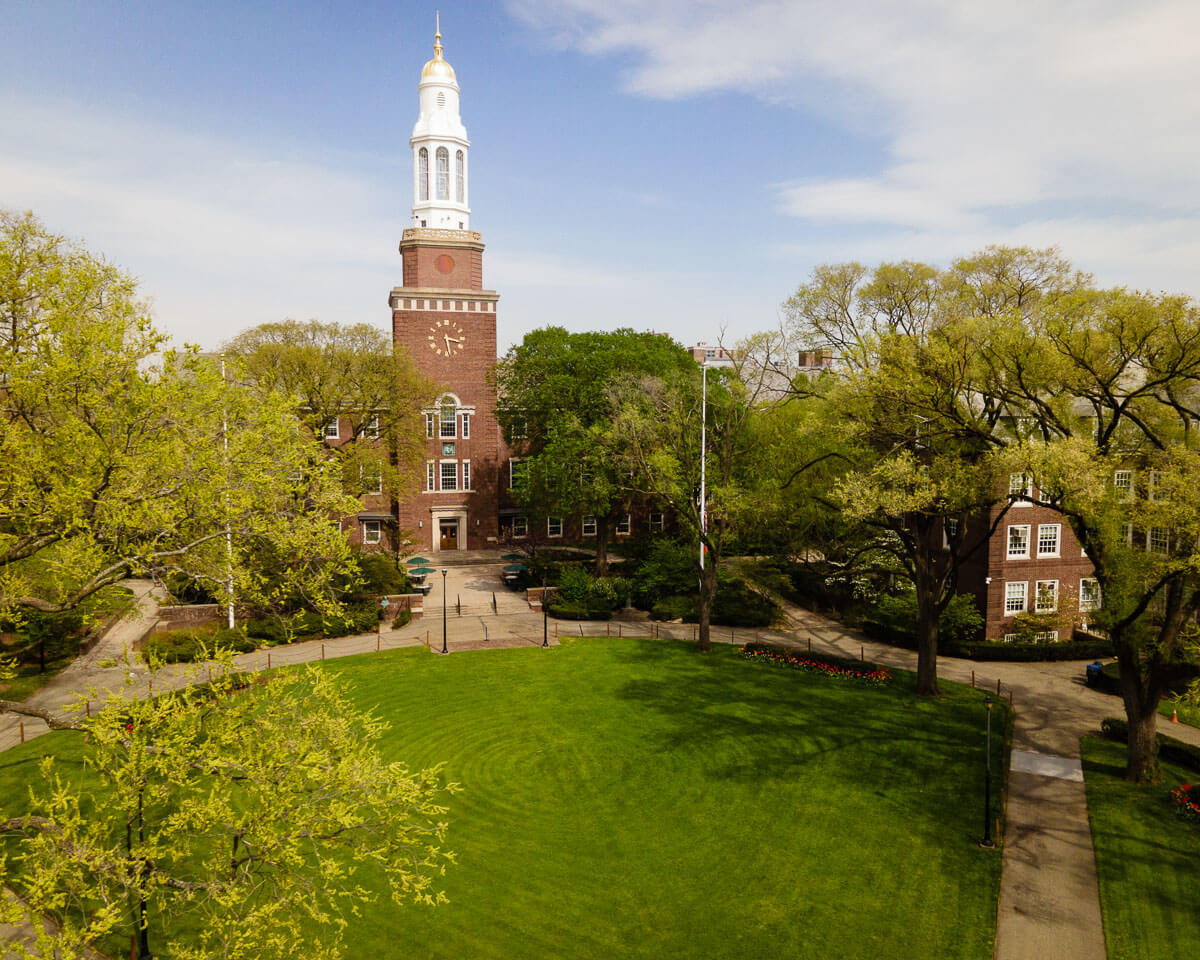Urban Sustainability, B.A.
School of Humanities and Social Sciences
Program Overview
The Urban Sustainability Program will provide you with the knowledge, power, and skills to promote sustainable policies and practices in your neighborhood and beyond. You will examine the dynamics between social and natural systems as well as the trade-offs among environmental, social, and economic sustainability. Having the advantage of learning about sustainability from this holistic perspective, you will graduate from the program exceptionally prepared to make our cities, and the world, healthier and more livable. You can choose from three tracks in this program: Environmental Science, Environmental Economics and Business Management, or Environmental Sociology.

Major Details
The program information listed here reflects the approved curriculum for the 2024–25 academic year per the Brooklyn College Bulletin. Bulletins from past academic years can be found here.
Major Description
The urban sustainability program takes a unique interdisciplinary approach by offering concentrations in economics, environmental science, and sociology. Students will examine the causes of urban sustainability problems and devise solutions that promote environmental protection, social equity, and economic vitality. Alongside their course work, students will learn how to map economic, environmental, and social data using our geographic information system (GIS) laboratory to produce and analyze data. Our place-based teaching approach features hands-on engagement with the natural and built environment of New York City—including field trips to community gardens, local waterways, and city parks—preparing students to understand and find solutions to global issues affected by urban development in an era of climate change.
Major Requirements (52.5–61 Credits)
Students must complete both A and B below:
A. All of the following courses
Urban Sustainability 1001, 2001W, 4001, 5001, Earth and Environmental Sciences 1201, 2400, Economics 2200, 3254, Philosophy 3309, Sociology 1101, 2201.
Economics 3400 or Earth and Environmental Sciences 2600 or Sociology 2112.
Biology 1001 and 3083, or EESC 2500.
B. Students must complete one of these three tracks:
- Environmental Economics and Business Management
- Environmental Science
- Environmental Sociology
With the permission of the Urban Sustainability Program Steering Committee, students may be allowed to take up to six credits of other courses to satisfy the requirements listed in A and B.
Student Learning Outcomes
Students will be able to:
- Discuss the complexity and potential trade-offs between social, economic, and environmental systems when analyzing urban sustainability issues and causes for environmental change.
- Apply methodologies in economics, sociology, and/or environmental sciences to analyze an urban sustainability problem through multiple disciplinary lenses using various forms of data (primary, secondary, qualitative, quantitative).
- Work in interdisciplinary teams to solve urban problems at the intersection of social, economic, and natural systems.
- Communicate sustainability concepts and information to a variety of audiences with well-organized and clear graphics (e.g., annotated photos, maps, graphs, posters) using technologies frequently used in urban sustainability research (e.g., software for GIS, statistics, spreadsheets, presentations).
Degree Maps
To help you pursue your studies in the most efficient manner, and to maximize your efforts to graduate in four years, Brooklyn College has created four-year degree maps for all its majors.
View degree maps for this major and others.
Contact
Contact the Urban Sustainability program for information on academic advisers and office hours.
Or contact:
Office of Undergraduate Admissions
222 West Quad Center
2900 Bedford Avenue
Brooklyn, NY 11210
E: adminqry@brooklyn.cuny.edu
To make an appointment with an undergraduate admissions counselor, visit:
Tracks
Environmental Economics and Business Management
Economic sustainability requires economic “development which meets the needs of the present without compromising the ability of future generations to meet their own needs.” (Our Common Future, 2007). Students choosing Environmental Economics and Business Management as a track examine environmental economics and policy, environmental management, economic growth, development, and trade. Environmental economists study the interrelationships between economic institutions and the natural environment at multiple spatial scales—neighborhood, urban, regional, and global.
Students completing the Environmental Economics and Business Management track will be able to:
- apply economic principles to problems related to the natural sciences;
- understand the interdependence of risk and uncertainty in social behavior and natural systems; and
- be familiar with multidisciplinary collaborative approaches for solving complex human-natural system problems.
Students will be prepared for graduate study in environmental and sustainability programs, and environmental law and public policy programs, as well as entry-level jobs in environmental government agencies, the not-for-profit sector, and environmental health and safety functions in Fortune 500 corporations.
Requirements
Economics 3202, 4400W, and two of the following: Economics 3232, 3252, Business 3180, 3181, 3182.
Environmental Science
Defining and solving many of the problems confronting urban centers requires an understanding of the physical, chemical, and biological processes of coupled natural-human systems. Students in the Environmental Science concentration will use the natural laboratory of New York City to examine issues such as urban soil contamination, loss of wetlands, coastal impacts of sea level rise, and effects of nitrogen pollution on marine ecosystems. Students will be prepared for graduate study in environmental and sustainability programs and acquire skills and knowledge that can be applied to careers in government, non-government, and private-sector positions requiring management of resources and/or researching on ways to protect the natural environment.
Requirements
Earth and Environmental Sciences 3600, 4310, 4325, 4275
Chemistry and Biochemistry 1040 or 1100, or Chemistry and Biochemistry 1050 and 2050, or Earth and Environmental Sciences 3100
Environmental Sociology
Sustainability requires that social institutions respond to ecological changes and constraints. Students choosing Sociology as a track will examine public policy, advocacy efforts, and environmental justice. Environmental sociologists uncover the role of social structures and institutions in shaping how people interact with the natural environment. For example, students will examine how social institutions structure science and how that affects our views and uses of nature. Students will also examine how social groups compete to shape environmental policies, and how those policies affect social inequality and environmental justice. Students will examine institutions working to shape sustainability, such as social movement organizations, community groups, and government agencies. Students who choose Sociology will acquire skills and knowledge that can be used in careers in environmental public policy, advocacy, diplomacy, education, and other fields.
Requirements
The Support You’ll Find
One point that can never be repeated enough is the importance of working with your professors and instructors. Even though there is plenty of good information to be found online, in each class you will learn from an expert in the field, who can answer your questions or direct you to the best resources available. The value of faculty cannot be overstated. Good connections with your instructors may be a deciding factor in landing your dream job.
Internships and Employers
Through job fairs, the internship database, and internship panels, the Magner Career Center gives students in the urban sustainability B.A. program access to career opportunities at a wide variety of employers, including:
- AECOM
- Al-Madrasa Al-Islamiya
- AmerisourceBergen
- Brooklyn Greenway Initiative
- Downtown Brooklyn Partnership
- GHD
- Gran Kriegel Associates, Architects + Planners
- Green Mountain Energy Company
- Madigan Development
- New York Botanical Garden
- New York City Department of Design and Construction
- New York City Department of Parks and Recreation
- New York University Tandon School of Engineering
- NextShift Collaborative
- Philips
- Sam Schwartz


